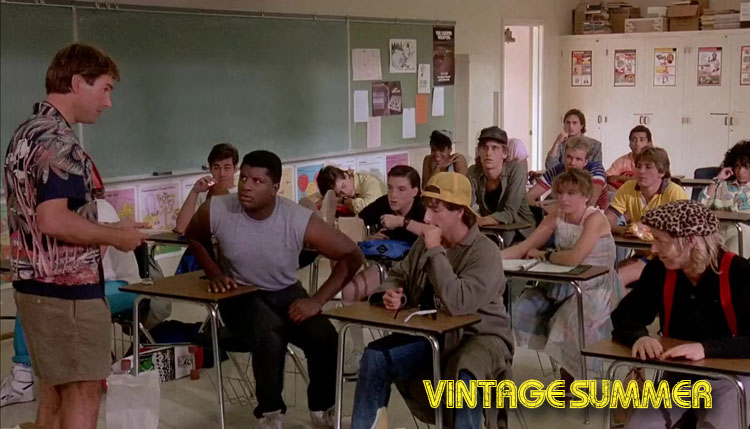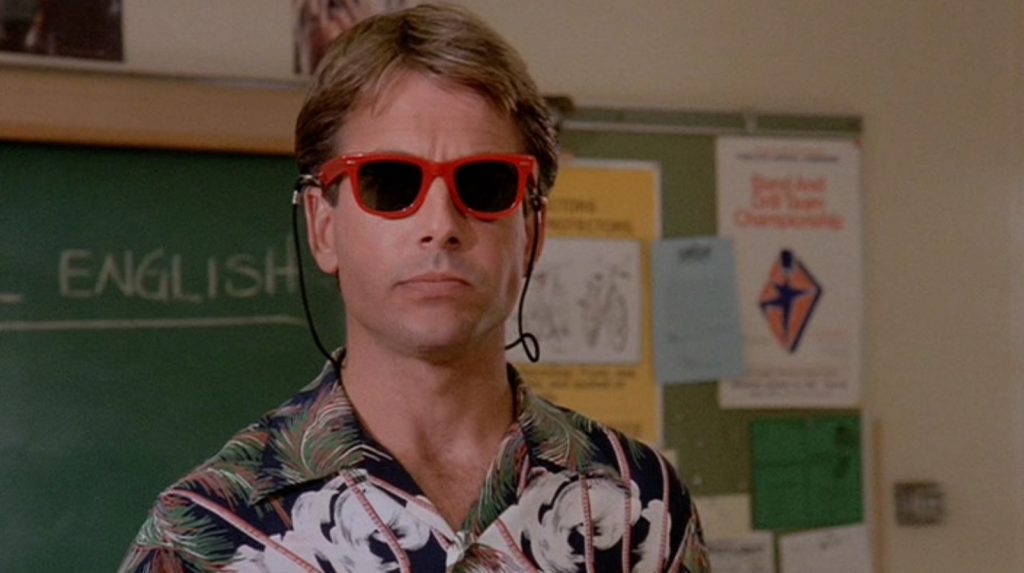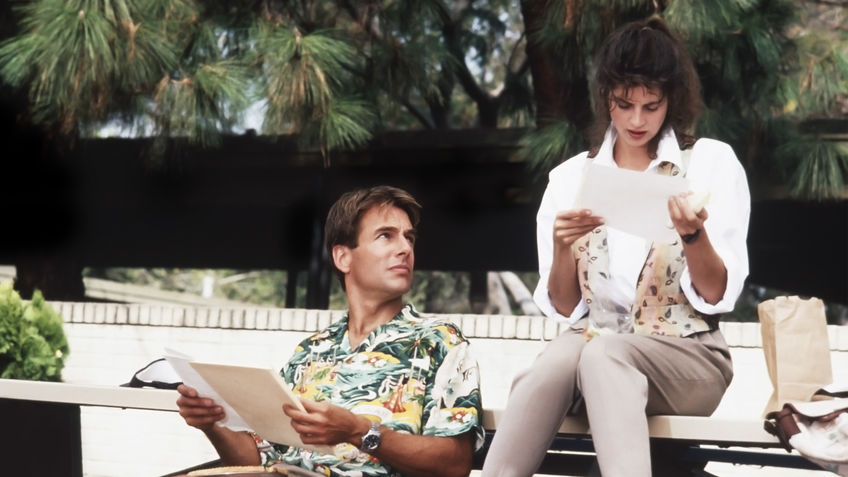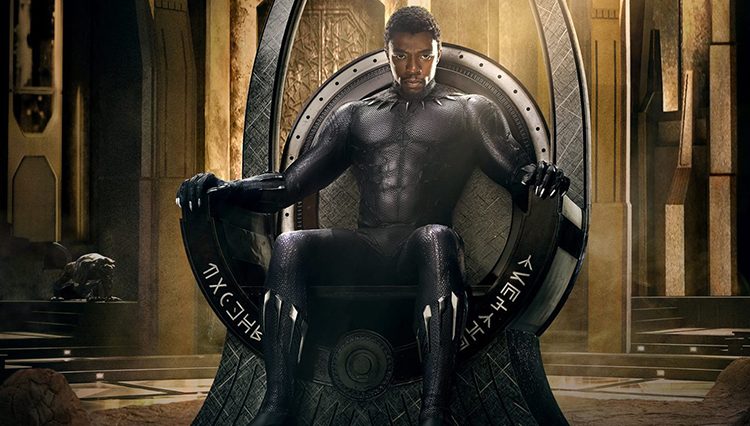
“Six weeks ago, I thought he had the IQ of a salad bar. His only interest in life was to make people sick. If my mother came to dinner, he would give the dog a third eye or an extra leg. Because of him, we stopped having kids. You can imagine the feeling when I saw him studying. The wife and I almost burst into tears.”
Summer School, 1987 (Mark Harmon) Paramount Pictures
Los Angeles is a land of manufactured fantasy. Harlan Ellison once described Los Angeles as a “big gauche baby with a shotgun in its mouth.” Summer School is a Los Angeles movie, because the behaviors, the lifestyles, and the modus operandi are almost completely alien to me. My world canvas is painted with stained bricks, choking humidity, melting asphalt, and the perpetual smell of garbage everywhere. Los Angeles may be intensely hot, and nary would you see a flake of snowfall gently in the canyons, but at least there is the artifice of open-air and bizarre elevations.
Los Angeles refuses the purchase of drinkable water to such a ridiculous extreme that water has to be piped and channeled from other States just to make life tolerable for its denizens. For me, it sounds like a kind of Hell, but for others, it’s a paradise. The land of manufactured fantasy sets the tone for Summer School starring Mark Harmon (huh?) and Kirstie Alley reunited a year after their ABC movie, Prince of Bel-Air (another definitive Los Angeles story), which also starred Patrick Labyorteaux and Dean Cameron. Indeed, Summer School strikes me as a movie that could have very easily been sold to television (even though it was rated “PG-13” for some slight sexual content and strong language).

Freddy Shoop (Harmon) is flying out the door for a trip to Hawaii with his girlfriend when colleague Mr. Dearadorian (director Carl Reiner) wins $50,000 in the lottery and decides that’s just enough for him to quit his job. The upshot is unless Shoop teaches Dearadorian’s Remedial English summer school class, he’ll lose his tenure (which sounds a lot like extortion). The class is made up of archetypes and misfits, including the very pregnant Shawnee Smith, horror movie buffs Cameron and Gary Riley, sleepy male stripper Ken Olandt, dyslexic Kelly Jo Minter, and easily-distracted surfer girl Courtney Thorne-Smith.
You might think these characters would get lost in the shuffle of Harmon’s verbal battles with stuck-up Vice-Principal Gills (Robin Thomas) and his near-constant flirtations with fellow teacher (and Gills’ love-interest) Kirstie Alley’s Robin Bishop, but Jeff Franklin’s surprisingly intelligent screenplay gives each of them distinct personalities and problems for Shoop to fix. Shoop bribes them at first with help in their personal lives to get them to improve their grades. He helps Minter take her driving test. He screens The Texas Chainsaw Massacre for Cameron and Riley. He helps Shawnee with her Lamaze class. He gives Thorne-Smith a place to stay. He throws up his hands when he feels he hasn’t accomplished anything, so the class bands together to keep him from quitting his job. They even arrange a graphic horror movie makeup display for the substitute hired to replace him.

The movie doesn’t end the way you would think. While Shoop does indeed inspire the kids to improve their grades, the highest grade goes to the kid who left class to use the bathroom. He was gone for six weeks. When Gills tries to get Shoop fired, the parents of the kids come in and offer stirring accounts of Shoop’s tutelage. Shawnee has her baby but she gives it up for adoption, which everyone agrees is the right thing to do. Kirstie ditches Gills for Shoop for the obvious reason that Shoop is the best-looking teacher at the school. I’m kidding, of course, but it seems logical. Mark Harmon was an unusual choice for this role. In my estimation, it seemed perfect for Chevy Chase, or even Bill Murray at the time.
Where Chase or Murray would project effortless sarcasm, Harmon struggles. These days, the part would probably go to Joel McHale, Greg Kinnear, or Jason Sudeikis, but Harmon acquits himself well despite his lack of comic timing. Summer School is a movie I mainly remember from television. When Paramount’s syndication line-up was first announced, a number of movies were broadcast exclusively in Independent markets. Summer School was one of those movies. This movie is a lot of fun. There are so many scenes that reminded me of my youth, particularly the ending which has Shoop’s dog, getting in on the make-out session between Mark and Kirstie on the beach (a From Here to Eternity nod) and pretty much messing up the take. Mark finally grabs the dog and kisses him. That made me smile.



